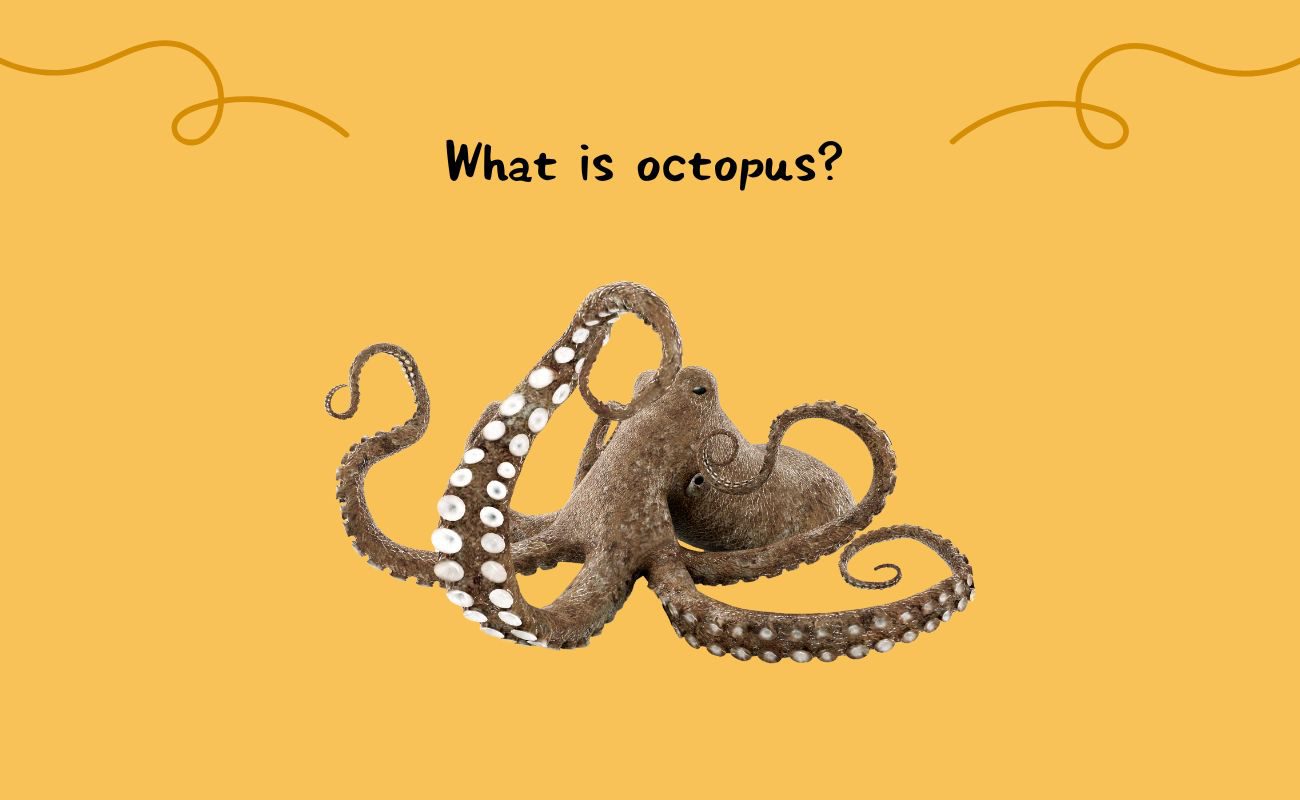What is Octopus? Can Dogs Eat Octopus?
Octopus is a marine mollusk belonging to the cephalopod family, known for its eight tentacles and soft, gelatinous body.
It is commonly consumed as seafood in various cuisines worldwide and is prized for its tender texture and mild flavor.
When it comes to our canine companions, pet owners often wonder about the safety of sharing various foods, including seafood like octopus. In this comprehensive guide, we’ll explore the question, “Can dogs eat octopus?” and provide valuable insights to ensure your dog’s well-being.
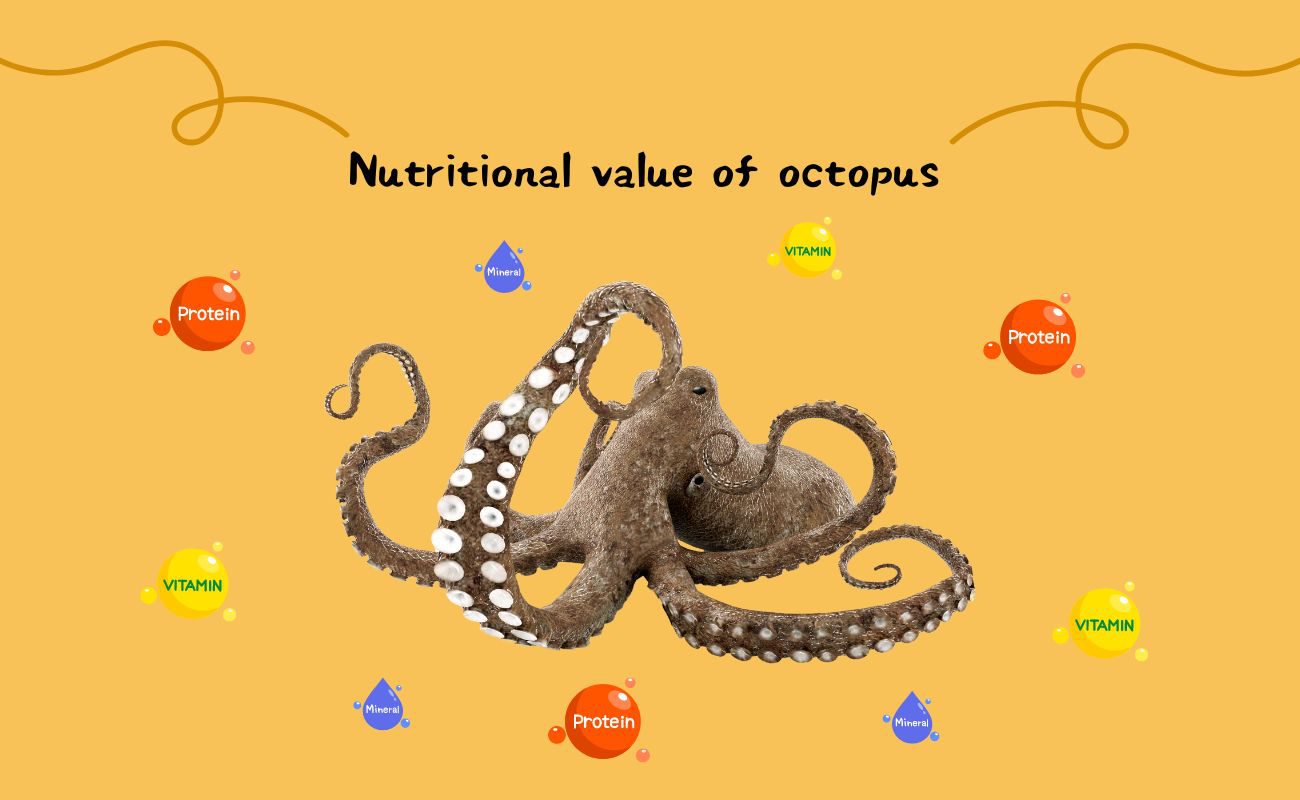
Nutritional Value of Octopus
Octopus is a nutrient-rich source of
- Protein
- Vitamins
- Minerals
It is low in fat and carbohydrates, making it a healthy option for both humans and dogs.
Here’s a table detailing the nutritional content and calorie details of octopus per 100 grams
| Nutrient | Amount Per 100g |
|---|---|
| Calories | 82 |
| Protein | 17.6g |
| Total Fat | 0.9g |
| Saturated Fat | 0.2g |
| Monounsaturated Fat | 0.2g |
| Polyunsaturated Fat | 0.2g |
| Cholesterol | 48mg |
| Sodium | 424mg |
| Potassium | 531mg |
| Total Carbohydrates | 0g |
| Dietary Fiber | 0g |
| Sugars | 0g |
| Vitamin A | 27IU |
| Vitamin C | 4.7mg |
| Calcium | 33mg |
| Iron | 6.2mg |
| Magnesium | 68mg |
| Phosphorus | 204mg |
| Zinc | 1.1mg |
Please note that the values provided are approximate and may vary depending on factors such as cooking method and preparation.
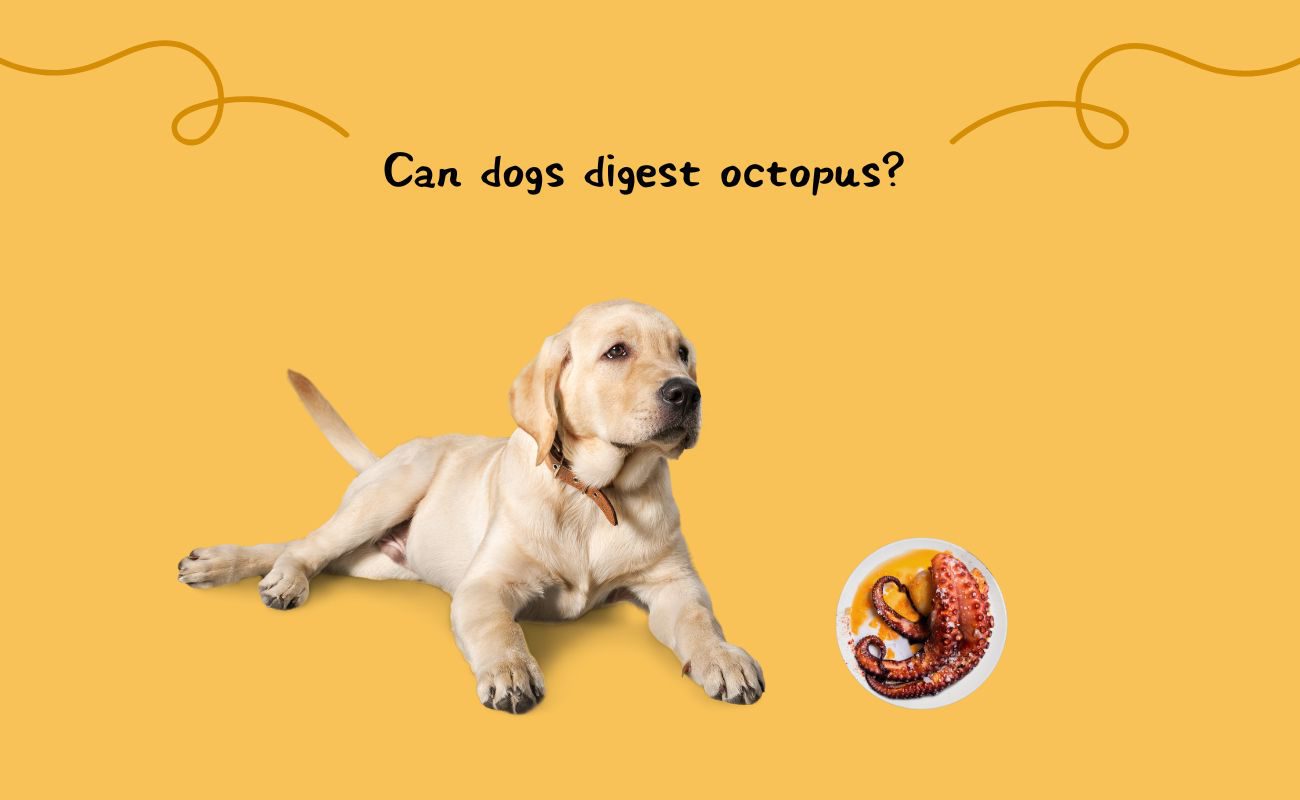
Can Dogs Digest Octopus?
Dogs have relatively short digestive tracts optimized for processing animal-based proteins.
While dogs can technically digest octopus, it may not be a natural part of their diet and could potentially cause digestive upset in some dogs.
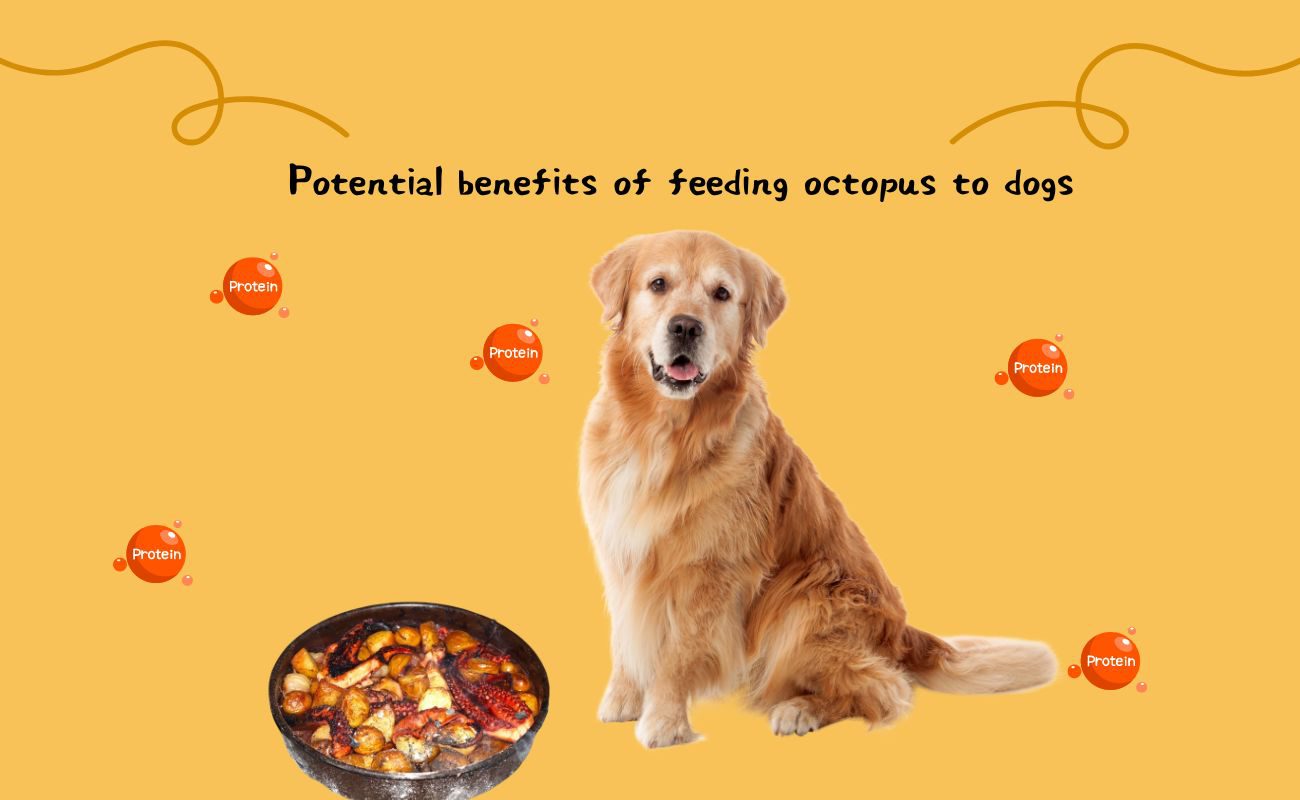
Potential Benefits of Feeding Octopus to Dogs
Octopus is rich in protein, which is essential for muscle development, repair, and overall health in dogs.
It also contains omega-3 fatty acids, which can support heart health, joint function, and a shiny coat.
Risks and Considerations
Octopus can be challenging for some dogs to digest, particularly if it is not prepared properly or if they have sensitive stomachs.
The texture of octopus, which is soft and gelatinous, may also pose a choking hazard for dogs, especially if they gulp their food without chewing properly.
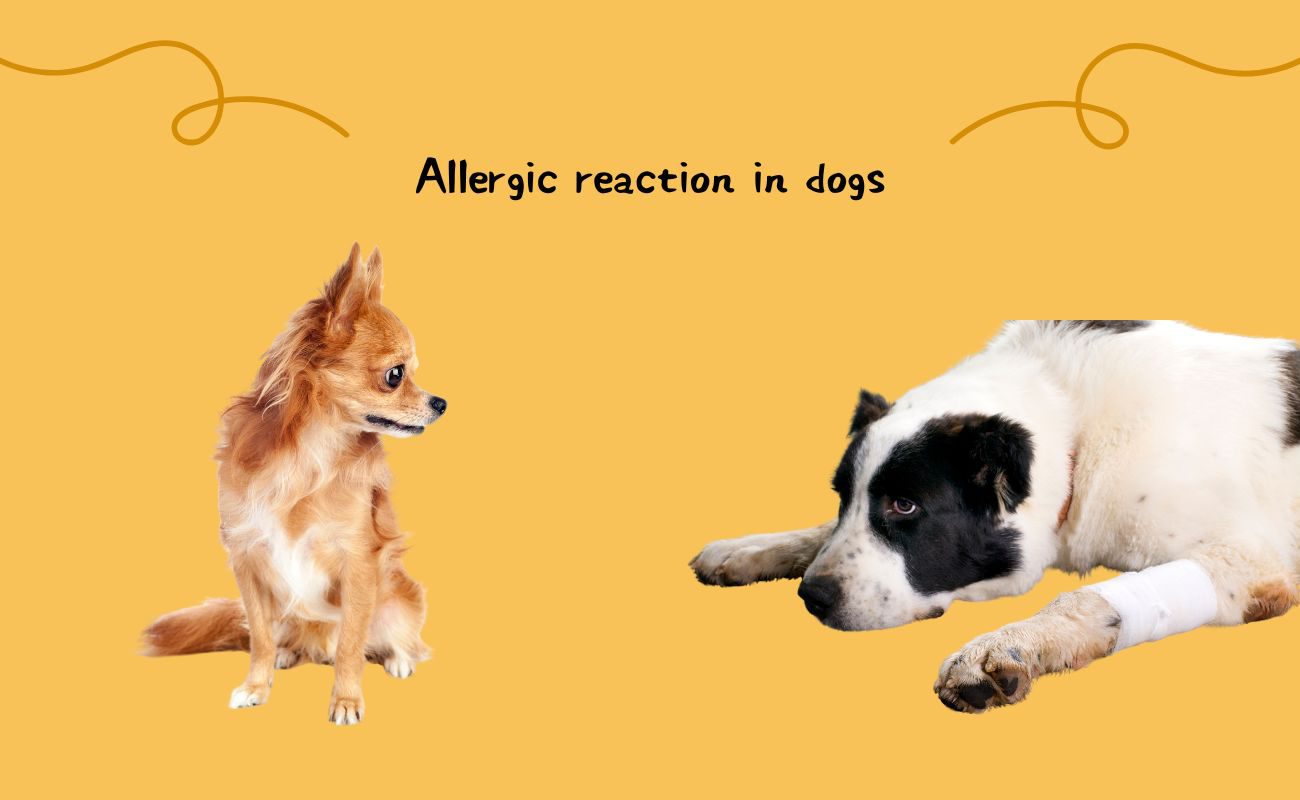
Allergic Reactions in Dogs
While allergies to octopus are rare in dogs, they can still occur.
Symptoms of allergic reactions in dogs may include itching, skin rashes, gastrointestinal upset, and difficulty breathing.
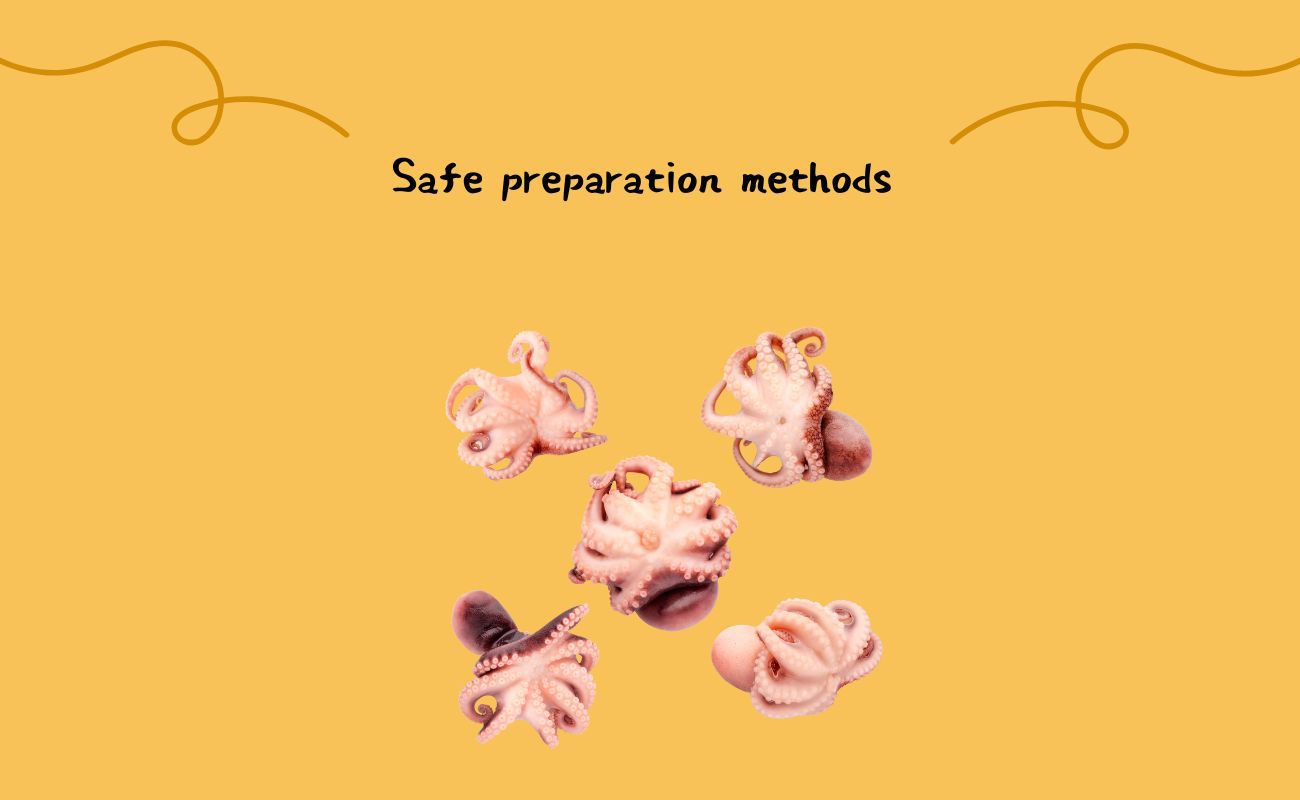
Safe Preparation Methods
When feeding octopus to your dog, it’s essential to ensure it is cooked thoroughly to kill any potential parasites or bacteria.
Avoid seasoning the octopus with ingredients like garlic, onion, or excessive salt, which can be harmful to dogs.
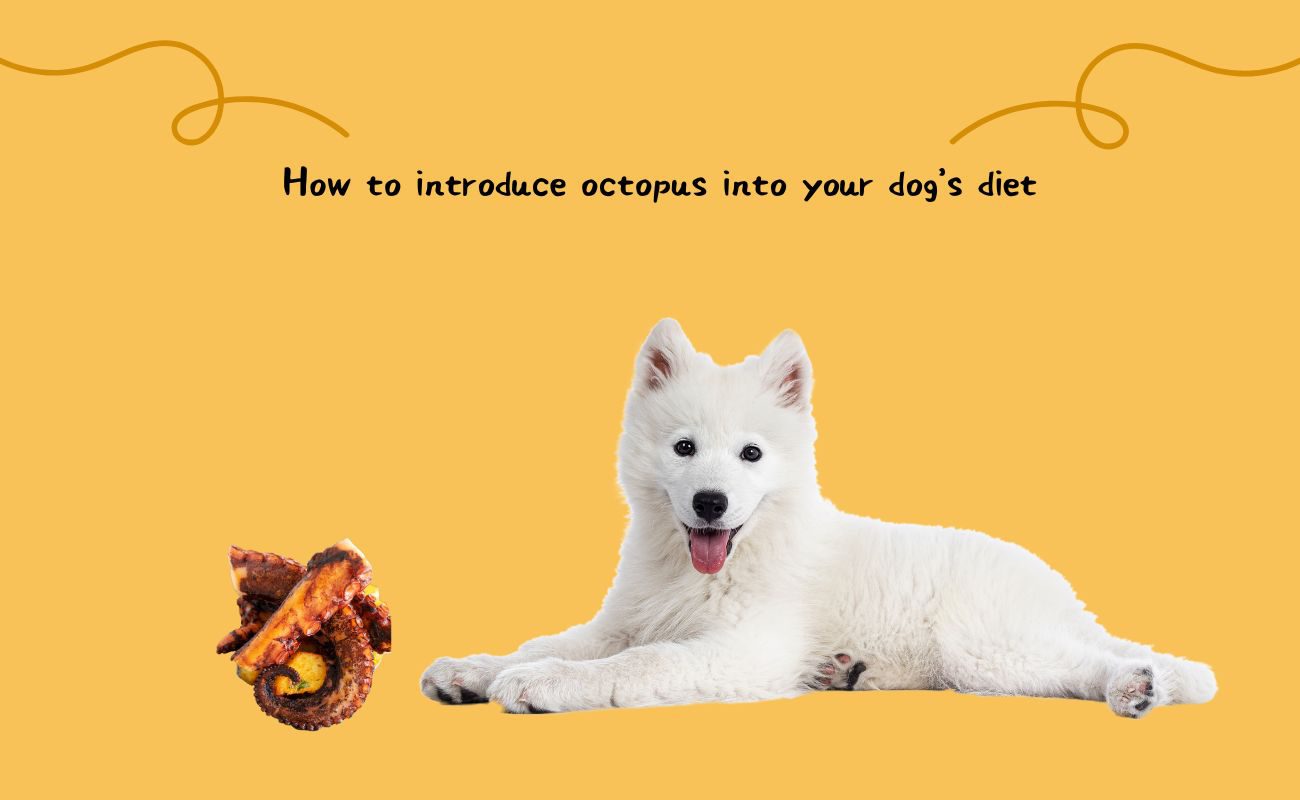
How to Introduce Octopus into Your Dog’s Diet
Start by offering small amounts of cooked octopus as a treat or mixed with your dog’s regular food.
Monitor your dog for any signs of digestive upset or allergic reactions after introducing octopus into their diet.
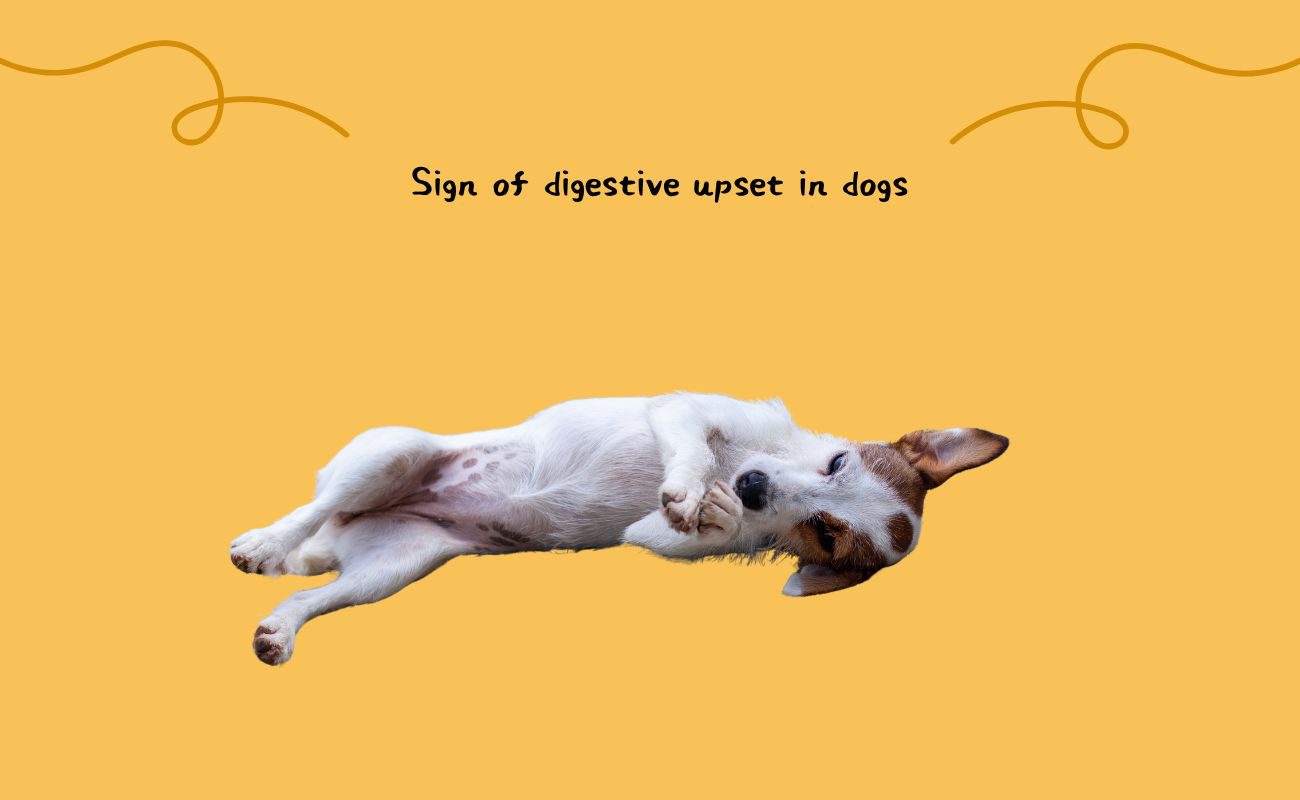
Signs of Digestive Upset in Dogs
Common signs of digestive upset in dogs include
- Vomiting
- Diarrhea
- Abdominal pain
- Lethargy
- Loss of appetite
If you notice any of these symptoms after your dog eats octopus, consult your veterinarian for guidance.
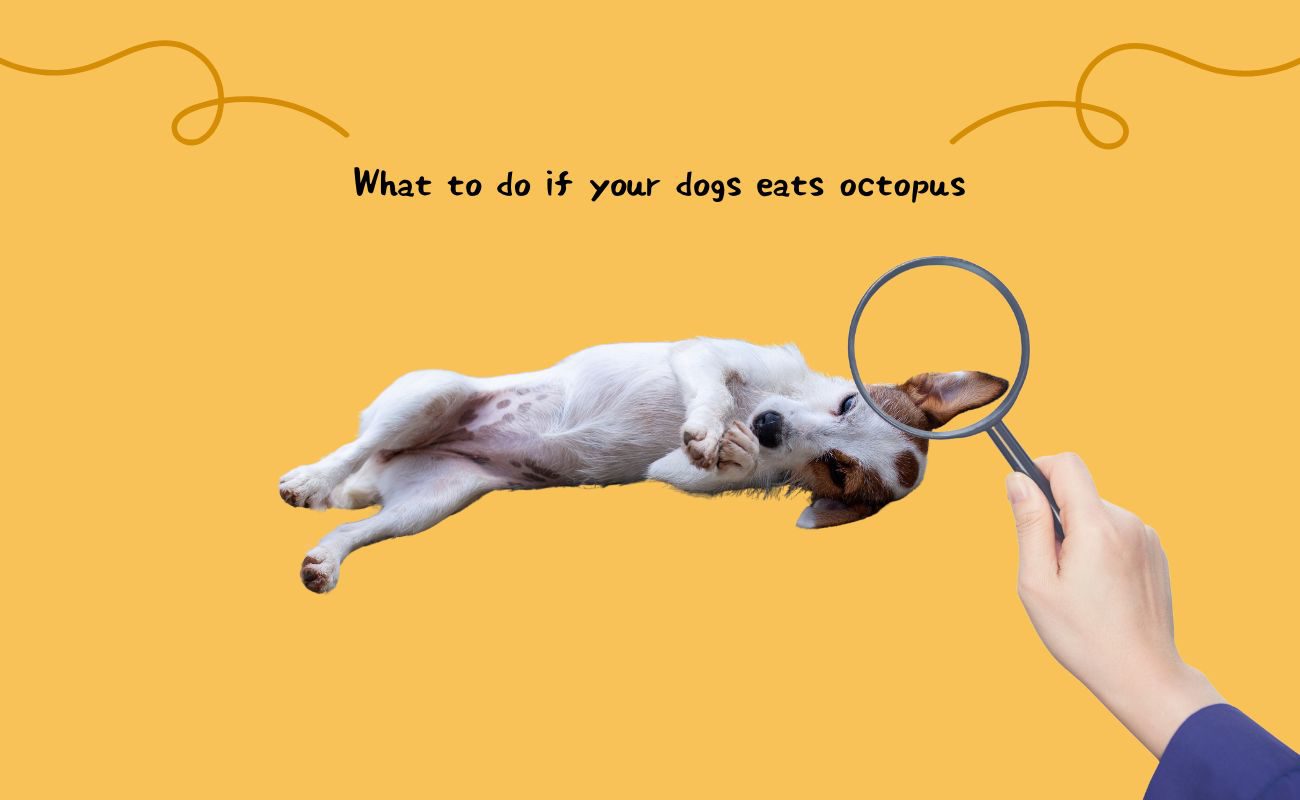
What to Do If Your Dog Eats Octopus
If your dog consumes an octopus accidentally, monitor them closely for any signs of discomfort or illness.
Provide access to fresh water and observe their behavior for any changes.
Contact your veterinarian if you notice any concerning symptoms or if you’re unsure about the safety of your dog’s consumption.
Summary: Making Informed Decisions for Your Dog’s Diet
Can Dogs Eat Octopus?
Yes, dogs can eat octopus, and it’s a healthy addition to their diet. Simply steam or cook an octopus leg without salt or oil, then slice it for a nutritious occasional treat. it’s essential to consider your dog’s individual dietary needs and any potential risks or sensitivities.
Consult with your veterinarian before introducing octopus or any other new foods into your dog’s diet, especially if they have any underlying health conditions or allergies.
By making informed decisions and monitoring your dog’s response, you can ensure they enjoy a balanced and healthy diet that supports their overall well-being.


